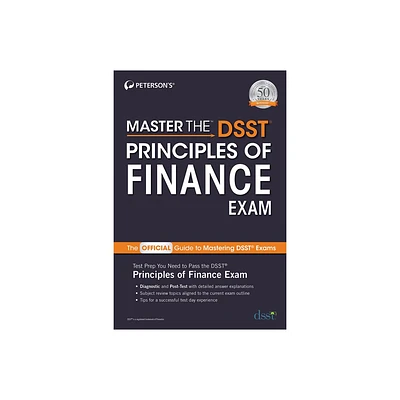Home
The Principles Governing Wealth & Finance
Loading Inventory...
Barnes and Noble
The Principles Governing Wealth & Finance
Current price: $28.99


Barnes and Noble
The Principles Governing Wealth & Finance
Current price: $28.99
Loading Inventory...
Size: Paperback
*Product Information may vary - to confirm product availability, pricing, and additional information please contact Barnes and Noble
Many people want to improve their well-being, happiness, and opportunities by managing their wealth and finances effectively. However, this is not an easy task, as it requires knowledge, skills, and discipline. There are some basic guidelines that can help us achieve our financial goals, increase our income, save and invest wisely, and use our resources for good purposes. These guidelines are based on sound economic theory, practical experience, and ethical values.
One of the guidelines is to create value for ourselves and others. Value is the benefit or satisfaction that people derive from goods or services. The more value we create, the more wealth we can accumulate. We can create value by developing our skills, talents, and passions and using them to solve problems, meet needs, and improve lives. We can also create value for ourselves by pursuing our own happiness, health, and fulfillment.
Another guideline is to manage money well. Money is a medium of exchange that facilitates trade and transactions. Money is also a store of value that represents our wealth and purchasing power. Managing money well involves making decisions about how much to earn, spend, save, invest, and donate. It also involves planning, budgeting, accounting, and reporting. It also involves understanding and managing the risks and returns associated with money.
A third guideline is to understand and respect the laws and principles that affect our wealth and finances. These laws and principles are natural and social rules that determine the behavior and outcomes of wealth and finance. Some of these rules are universal, such as the law of supply and demand, the principle of compound interest, and the principle of diversification. Some of these rules are contextual, such as the laws and regulations of different countries, markets, and institutions, and the principles and norms of different cultures, religions, and communities. These rules can change and challenge our wealth and finances, so we need to adapt and respond accordingly.
A fourth guideline is to use our wealth and finances wisely and responsibly. Wealth and finance are not the ultimate goals or purposes of life. They are means or resources that enable us to pursue our true goals and purposes. How we use our wealth and finances reflects our character, values, and priorities. We can use our wealth and finances for good or evil, for ourselves or others, for the present or the future. We should make ethical, moral, and sustainable choices. We should also share, give to those in need, and support worthy causes and initiatives.
These are some of the guidelines that can help us improve our wealth and finances in real-life situations. By following these guidelines, we can enhance our quality of life and contribute to the common good.
One of the guidelines is to create value for ourselves and others. Value is the benefit or satisfaction that people derive from goods or services. The more value we create, the more wealth we can accumulate. We can create value by developing our skills, talents, and passions and using them to solve problems, meet needs, and improve lives. We can also create value for ourselves by pursuing our own happiness, health, and fulfillment.
Another guideline is to manage money well. Money is a medium of exchange that facilitates trade and transactions. Money is also a store of value that represents our wealth and purchasing power. Managing money well involves making decisions about how much to earn, spend, save, invest, and donate. It also involves planning, budgeting, accounting, and reporting. It also involves understanding and managing the risks and returns associated with money.
A third guideline is to understand and respect the laws and principles that affect our wealth and finances. These laws and principles are natural and social rules that determine the behavior and outcomes of wealth and finance. Some of these rules are universal, such as the law of supply and demand, the principle of compound interest, and the principle of diversification. Some of these rules are contextual, such as the laws and regulations of different countries, markets, and institutions, and the principles and norms of different cultures, religions, and communities. These rules can change and challenge our wealth and finances, so we need to adapt and respond accordingly.
A fourth guideline is to use our wealth and finances wisely and responsibly. Wealth and finance are not the ultimate goals or purposes of life. They are means or resources that enable us to pursue our true goals and purposes. How we use our wealth and finances reflects our character, values, and priorities. We can use our wealth and finances for good or evil, for ourselves or others, for the present or the future. We should make ethical, moral, and sustainable choices. We should also share, give to those in need, and support worthy causes and initiatives.
These are some of the guidelines that can help us improve our wealth and finances in real-life situations. By following these guidelines, we can enhance our quality of life and contribute to the common good.

















